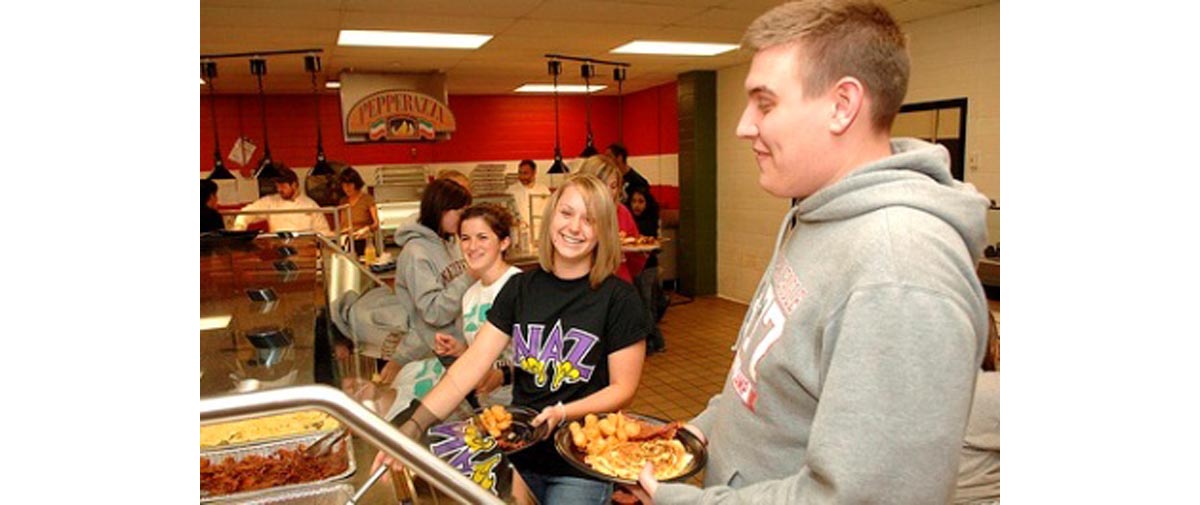Table of Contents
College is an exciting time for young people. They have new-found independence, high hope, and high expectations. Unfortunately, there is the possibility of weight gain. There is now new research that disproves this common myth of the ‘freshman fifteen”.
If you are starting off to college and concerned about your risk of weight gain, take comfort in knowing that it is just a myth. You may gain weight, however, because you will be making the transition from adolescent to young adult during your college years.
Fall is the time when the weight gain can sneak up on you because you become less active and spend more time sitting writing papers and studying. The most important things you can do include exercise and eating healthy is another.

The first thing you can do is to sign up for a fitness class like aerobics or tennis . Check with your enrollment advisor for one that may count as credit toward your degree. You will learn more about exercising and stay in shape while you do this. If there is no fitness class you like, make up an exercise routine and stick with it.
Next, try not to be under too much stress . Stress is something all college students are familiar with because of the hectic campus lifestyle. The thing you may not know is that when your body is stressed, you produce more cortisol. Cortisol is known as the stress hormone and it causes weight gain because it alters the body’s metabolism. If you feel like you’re getting tense, go for a stroll around campus. Avoid turning to sugary treats or high-fat snacks to relieve stress as this just adds to the weight gain problem.
Another thing adolescents should do is to keep healthy snacks around . Don’t buy the three C’s (cookies, candies, and cakes). Instead, keep your kitchen or dorm area stocked with whole-grain pretzels, fruits, and veggies. These food items are low in calories and high in nutrition. Most dorms allow you to have a small refrigerator, so keep yogurt and veggies available to munch on. When it comes to dining out, eat from the salad bar and skip the heavy dressings. Also, choose grilled or baked meat selections versus deep-fried and breaded versions. Skip out on casseroles and creamy sauces, too. Be sure to eat smaller meals rather than large, infrequent meals.
Everyone knows that partying goes on in the college arena. You can’t go to college and not drink some alcohol some time. The important thing to remember is to drink alcohol in moderation and don’t make a daily thing of it. Many college kids find their new freedom and take advantage of this opportunity to party. You should only have a couple of drinks on weekends and drink alcohol sparingly. Most of these beverages are loaded in empty calories and cause bloating and water retention.
Read more: Why Does Exercise Make Us Feel Good
Start your morning off with a healthy well-rounded breakfast . It is a common pitfall of young people – skipping breakfast. The most important meal of the day needs to include some source of protein, too. This will keep you from mid-morning munching and boost your metabolic rate so you burn calories throughout the day. Good protein sources are meats, yogurt, milk, and fortified cereals. You should then, carry a snack along with you and make it a healthy or a banana or apple into your backpack for later. Snacks should be high in fiber, making fruits a great choice.
Finally, you can cook your own meals to assure you are getting healthy foods that are low in fat, complex carbohydrates, and sugar. Don’t eat at the college cafeteria or fast food all the time. Instead, cook a nutritious meal for yourself or better yet, go in with a friend and prepare meals. Avoid junk food as meal substitutions, as this is an unhealthy choice.
- Mann, D./WebMD (2011). Freshman 15 may be a myth. Retrieved from:http://teens.webmd.com/news/20111103/freshman-15-may-be-just-a-myth
- eHow (2011). How to avoid the freshman fifteen. Retrieved from: www.ehow.com/how_1576_avoid-freshman-15.html
- Photo courtesy of rocketboom on Flickr: www.flickr.com/photos/rocketboom/2866090487/
- Photo courtesy of nazareth_college on Flickr: www.flickr.com/photos/nazareth_college/4484109769


Your thoughts on this